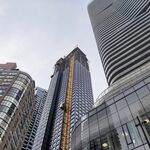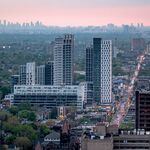Here's a crazy idea: Let's carefully examine what's working in other cities, balance that with our city's unique needs, then make thoughtful decisions that deliver good cost-benefit and work within current funding constraints.
Sounds good on paper, but consider the following:
What does the city actually need? We all know it needs "better transit", but that is such a vague concept that it's really hard to pin it down. It's a good election talking point, but nothing more.
Is "better transit" establishing a network of higher capacity, higher reliability suburban feeder lines that are designed to cater to the more local suburban travel patterns?
Or is "better transit" a series of trunk lines with wider stop spacing designed to alleviate congestion on the existing rapid transit network?
Both of those sound very good on paper as well, and they both sound as if they could work. However, what you define as the city's most pressing transit "needs" will drastically affect the end result of the planning exercise. Making wishy-washing mission statements is all well and good (and yes, it is a good starting place), but without specific goals describing what you would like to achieve, it's a vision without a direction. Having said that, here are the goals I would like to see the new transit plan address:
1) Alleviate the congestion on existing rapid transit routes by providing viable alternatives to existing travel patterns.
2) Identify corridors that are most in need of a transit upgrade, and which corridors are in need of upgrades to select areas of the corridor.
3) Select a technology for the corridor that balances local needs, regional needs, connectivity with the rest of the system, and cost-effectiveness.
4) Identify key locations along existing bus routes that could benefit from queue-jump lanes, curbside cut-outs, and signal priority, in order to provide a moderate increase in reliability for a marginal cost.




